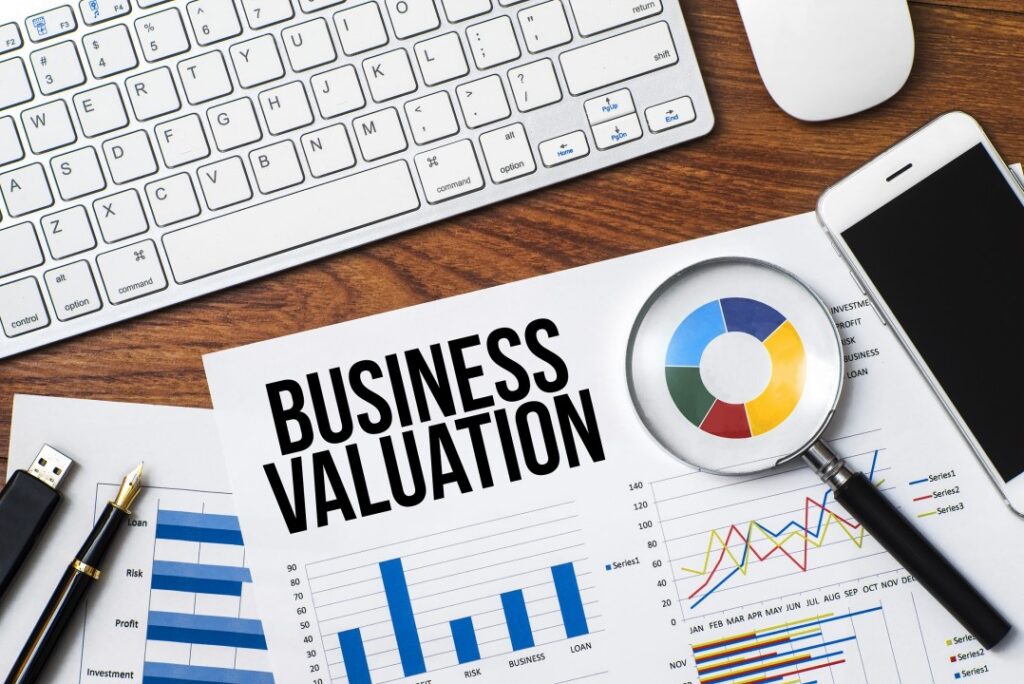
How to Determine the Value of a Small Business: 7 Steps
- Gather Financial Information: Collect comprehensive financial records, including income statements, balance sheets, cash flow statements, tax returns, and other relevant financial documents, for at least the past three to five years.
- Assess Tangible and Intangible Assets: Conduct a detailed inventory and valuation of the business’s tangible assets (e.g., real estate, equipment) and intangible assets (e.g., intellectual property, brand equity, customer relationships) to determine their fair market value.
- Choose the Appropriate Valuation Method: Based on the nature of the business, industry dynamics, available data, and specific circumstances surrounding the valuation, select the most suitable valuation method (s).
- Calculate Preliminary Value: Apply the chosen valuation method(s) to calculate a preliminary estimate of the business’s value. Utilize accurate financial data, conservative assumptions, and appropriate valuation techniques to derive a realistic valuation.
- Adjust for Market Conditions and Trends: Consider current market conditions, industry trends, economic factors, and other external influences that may impact the business’s value. Adjust the preliminary valuation to account for changing market dynamics and future growth prospects.
- Validate with Multiple Methods: To ensure consistency, accuracy, and reliability, cross-validate the preliminary valuation by applying alternative methods or techniques. Compare the results of different valuation approaches and reconcile any discrepancies or variations.
- Seek Professional Advice: Consult with experienced valuation professionals, financial analysts, certified appraisers, or business advisors to validate the valuation, obtain expert insights, and address any complex valuation issues or challenges.
Key Factors Influencing Business Valuation
- Financial Performance: A small business’s financial performance serves as a cornerstone for its valuation. Analyzing key financial metrics such as revenue, profitability, cash flow, and growth trends provides valuable insights into the business’s financial health and performance.
- Market Conditions: External market factors, including economic conditions, industry trends, market demand, and competitive landscape, significantly impact a business’s value. Understanding the prevailing market conditions and industry dynamics is essential for accurate valuation.
- Business Assets: Tangible assets such as real estate, equipment, inventory, and machinery, as well as intangible assets like intellectual property, brand reputation, customer relationships, and proprietary technology, contribute to the overall value of a small business.
- Operational Efficiency: The efficiency and effectiveness of a business’s operations, including management quality, operational processes, productivity levels, and scalability, play a crucial role in determining its value. Businesses with streamlined operations and robust management practices often command higher valuations.
- Growth Potential: Assessing the business’s growth prospects, market expansion opportunities, innovation capabilities, and scalability is vital for estimating its long-term value. Factors such as market positioning, product diversification, geographic expansion, and customer acquisition strategies influence the business’s growth potential and, consequently, its valuation.
Common Valuation Methods
- Asset-Based Approach: This method calculates the value of a small business based on the total value of its tangible assets, less liabilities. It is commonly used for asset-intensive industries such as manufacturing or construction companies.
- Earnings Multiplier: The earnings multiplier method involves multiplying a certain financial metric (such as Earnings Before Interest, Taxes, Depreciation, and Amortization – EBITDA) by an industry-specific multiplier to determine the business’s value. This method considers the business’s earning potential, risk profile, and industry norms.
- Discounted Cash Flow (DCF): DCF analysis estimates the present value of a business’s future cash flows by discounting them back to their present value using a discount rate. This method considers the time value of money and risk factors associated with future cash flows, providing a comprehensive valuation approach.
- Market Comparison: This approach involves comparing the business to similar businesses that have recently been sold in the same industry or market segment. Analyzing comparable transactions and market data helps determine the business’s fair market value.
- Seller’s Discretionary Earnings (SDE): SDE adjusts the business’s net income by adding discretionary expenses, owner’s compensation, and other non-essential expenses. This method is commonly used for small businesses, particularly those with owner-operator models, to reflect the company’s true earning potential.
Conclusion
Determining the value of a small business is a multifaceted and intricate process that requires a thorough understanding of financial principles, industry dynamics, market conditions, and valuation methodologies. By following the steps outlined in this guide and leveraging appropriate valuation techniques, entrepreneurs and stakeholders can make informed decisions, negotiate effectively, and maximize the value of their small businesses. Whether planning to buy, sell, invest in, or grow a small business, conducting a comprehensive and accurate valuation is essential for achieving your business objectives and maximizing shareholder value.
